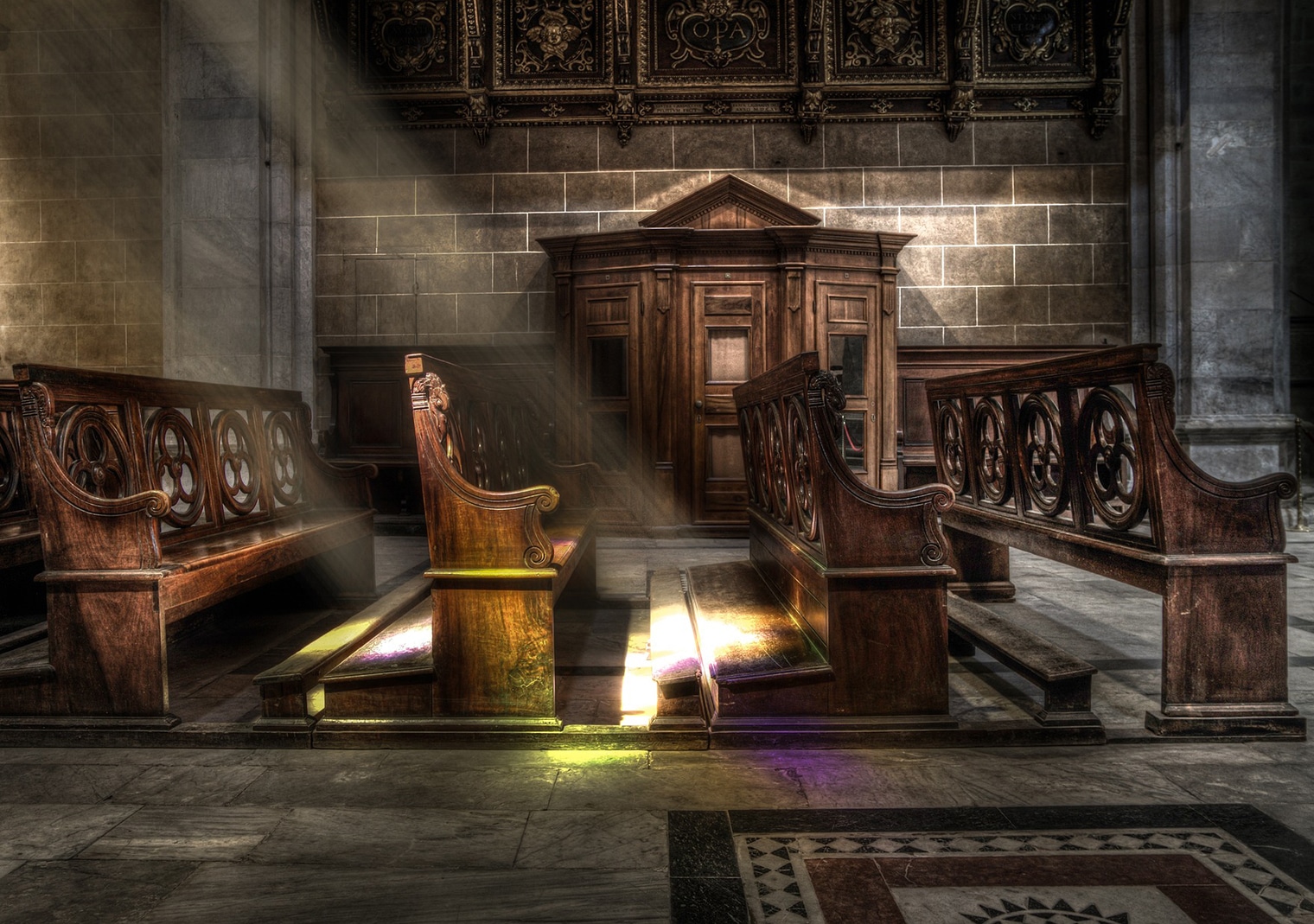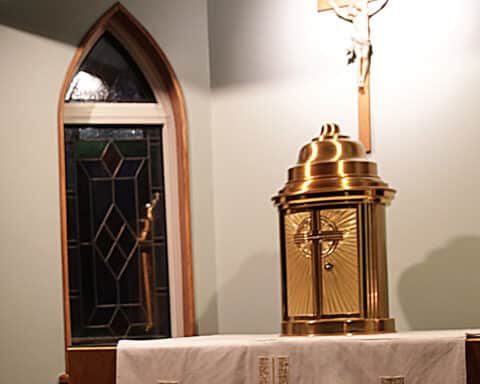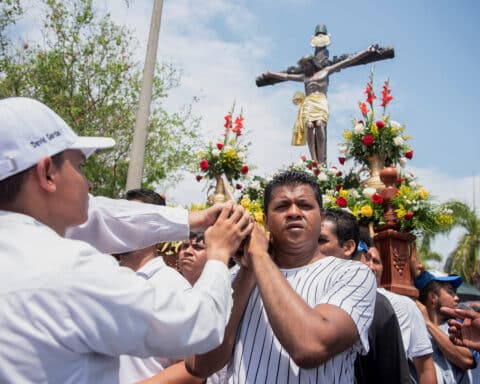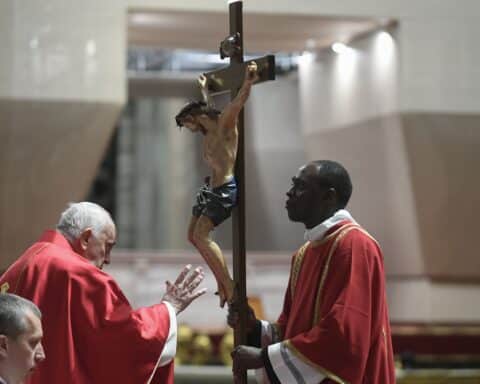Holy Saturday is often overlooked in the celebration of Holy Week. I suspect it has a lot to do with the fact that there’s not a celebration that day that directs our hearts and minds to the mystery of the tomb. On Holy Thursday we celebrate the institution of the Eucharist. On Good Friday, we remember the Lord’s Passion. But by Saturday, we’re already attending to all the preparations for Easter Sunday.
The Roman Missal instructs, “On Holy Saturday the Church waits at the Lord’s tomb in prayer and fasting, meditating on his Passion and Death and on his Descent into Hell, and awaiting his Resurrection.” There are no Masses said. Holy Communion is only given as viaticum (to someone approaching death).
The day is marked by silence. In his contemplation of God’s nature, St. Thomas Aquinas emphasizes the idea of God’s action as always purposeful and powerful, even when hidden from human eyes. Thus, the silence of Holy Saturday is not an absence of divine action but a moment of profound, mysterious work. It is here, in the hiddenness of Christ’s descent into the tomb, that Aquinas sees the conquering of death. It can feel like God is absent.
The hiddenness of God
An ancient homily for Holy Saturday included in the Roman breviary describes the mystery: “What is happening? Today there is a great silence over the earth, a great silence, and stillness, a great silence because the King sleeps; the earth was in terror and was still, because God slept in the flesh and raised up those who were sleeping from the ages. God has died in the flesh, and the underworld has trembled.”
On Holy Saturday, the battered, broken body of the Lord awaits the Resurrection. And it can feel like we’re alone.
How often in our lives have we overlooked the work of God? Or even more painful still, looked for God and struggled to find him? On Holy Saturday, the battered, broken body of the Lord awaits the Resurrection. And it can feel like we’re alone.
Holy Saturday is a day of the hiddenness of God. It’s a day worth thinking about for our time. How many of our contemporaries declare that God is dead? Or even if they can’t bring themselves to pronounce the words, they still live that way? Like God was hiding and far from them?
The solidarity of the tomb
But is Holy Saturday really a day of abandonment? Far from it, for there is still love. Pope Benedict XVI writes, “Human beings live because they are loved and can love; and if love even penetrated the realm of death, then life also even reached there.” In the greatest sufferings of life, we should take consolation. There is still Christ. There is love.
But how is there love in the tomb? What hope can we find in the darkness of Holy Saturday? Cardinal Sarah writes, “Just as when we were children, we were afraid to be alone in the dark and could only be assured by the presence of someone who loved us. Well this is exactly what happened on Holy Saturday, the voice of God resounded in the realm of death.” Christ is the perfect mediator between God and man, fully human and fully divine. His passion, death and descent into the tomb fully embrace the human experience of death, and his divinity conquers it.

Christ is not apart from us in the tomb. Quite the opposite. The tomb is a sign of his radical solidarity.
The silence of Holy Saturday is not the last word. How many times in life has it felt like things are out of control? And worse still, that God isn’t doing anything about it?
On Holy Saturday we wait in hope. There is a tomb and death, but all is not lost. Let us go to the tomb, keep watch and pray.





